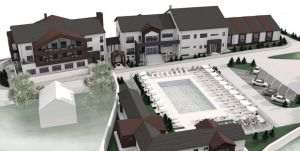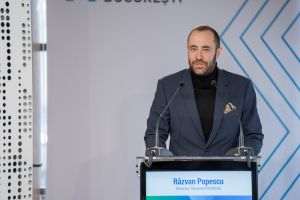The announcement of Hungarian gas operator FGSZ that BRUA would end in Hungary instead of in Austria was surprising and it didn't come as a result of consultations with its regional partners or the European Commission, European MP Ramona Mănescu told us. In her opinion, Hungary's decision represents a position that goes against the Energy Security Strategy of the European Union.
Mrs. Mănescu told us: "The BRUA project, the way it was designed and negotiated with the four countries involved, Bulgaria, Romania, Hungary and Austria, is not just a simple connection between Southern and Central Europe, but also a strategic investment that allows the access of the Central European region to the natural gas deposits found in the basin of the Black Sea.
The European funding of 180 million Euros that this project received is not accidental. The announcement of the Hungarian operator, that coincided with another, of the signing of an agreement with Russian company Gazprom concerning the construction of a gas pipeline that will connect Southern Gas Corridor to Hungary, through Serbia and Bulgaria, makes the entire region even more vulnerable, even as it is already dependent on Russian natural gas, and in the medium term it can even affect the operations for the development of the exploitation of hydrocarbons in the Black Sea basin. For the time being, the BRUA project is not affected, as it is proceeding according to the agreed schedule. But in the future there is the possibility of it being affected in the future, if the Hungarian side doesn't reconsider its position, and along with it, the long term interests of the entire region. That is why I think that together with the Romanian side and Transgaz, the European Commission should get involved in reaffirming the strategic options of the Union and bring the situation to its natural course.
For that reason, immediately after the initial information appeared, - the parallel project signed by Hungary with Gazprom - we have addressed a written enquiry to the European Commission. We have asked for clarifications and a positioning of the Commission concerning the compliance of the Hungarian initiative with the European Energy Security Strategy and the coordination with BRUA, a European project which is already in the process of implementation. I hope that the answer will come as soon as possible - three weeks have already passed since then".
• The ANRE has approved the launch of the call for bids for the contracting of the capacity of natural gas transport as part of the BRUA
The regulatory committee of the National Energy Regulation Authority (ANRE) has announced on Friday that it has approved the launch of the call for tenders for the contracting of the capacity of natural gas transport as part of the BRUA project, on the Romania - Hungary connection.
"The regulatory committee of the ANRE has passed today (ed. note: Friday, July 28th), in an extraordinary meeting, the decision no. 1123/28.07.2017 to approve the binding manual for the approval of the open season bidding which will be conducted jointly by The National Society for the Transport of Natural Gas of Mediaş and Földgazszallíto Zartkörûen Mûködõ Reszvenytarsasag - FGSZ Ltd, in order to allocate incremental capacity at the interconnection point for the National natural gas transport system in Romania to the similar Hungarian system of Csanadpalota", the ANRE announced on Friday.
Emil Calotă, vice-president of the National Authority for the Regulation of the Energy Market (ANRE), said on Thursday that July 31st was the deadline for the beginning for the call for tenders procedure for the transport capacity of the BRUA pipeline, but only on the Romania-Hungary segment, and not on the Romania-Hungary-Austria connection, as had initially been approved by the authority on May 26th, by the Hungarian side on May 23rd and by the Austrian side at the end of May.
Transgaz recently announced that on July 18th 2017, it received a letter from the operator of the Hungarian natural gas transport system concerning the process for the approval of the open season bidding scheduled to be held in order to allocate the capacities pertaining to the Romania-Hungary-Austria corridor for the transportation of natural gas.
Transgaz said: "Through that letter we have been informed that FGSZ can not conduct the scheduled procedure due to the lack of approval needed from the company's supervisory board, motivated by lack of economic viability. As an alternative, the Hungarian side has proposed conducting the open season binding process only for RO-HU interconnection point, and the volume of natural gas of 4.4 billion cubic meters/year, which would come from Romania to be distributed from Hungary to Slovakia, Ukraine, Croatia or Serbia. In parallel, FGSZ would continue the talks with the Austrian gas transport operator (Gas Connect) to find other possibilities for physical transport from Hungary to Austria", said Transgaz".
Through that letter, the company was informing its shareholders and potential regional investors that from the company's point of view, the objectives and projects assumed concerning the development on Romania's territory of the BRUA infrastructure remained unaffected.
The BRUA project is being developed amid the need for the diversification of the sources of natural gas of European countries, the increase in Romania's guarantee of natural gas supply by providing access to new sources, facilitating the access of the Central and Eastern European market to the natural gas resources in the Caspian region.
Transgaz is currently in full process for the implementation of the first phase of the project.


























































